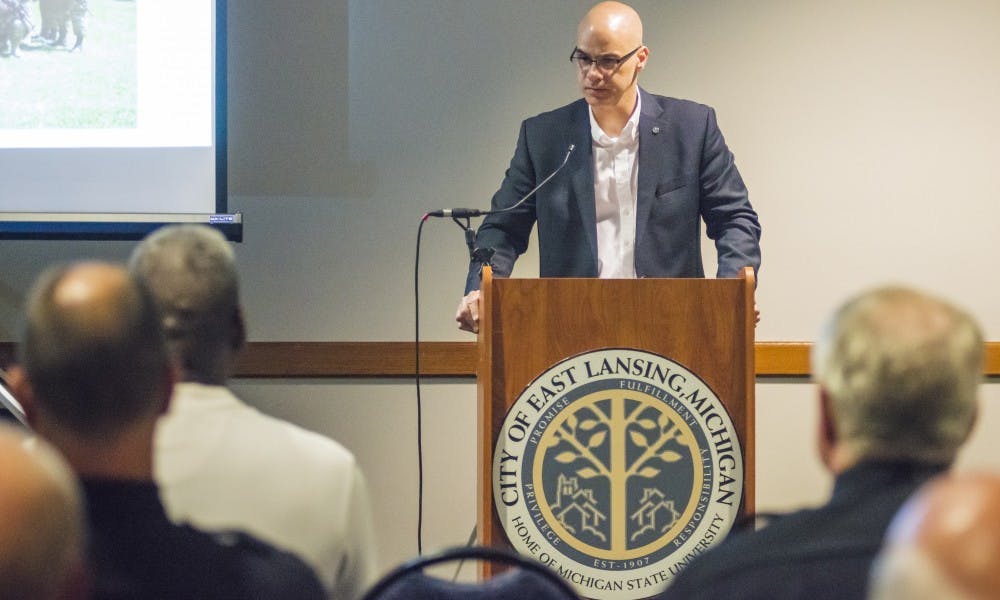An income tax vote slated for this November's elections will affect MSU students and faculty living in and around East Lansing if the ballot measure is approved.
East Lansing City Council voted unanimously Tuesday night to bring an income tax to the ballot following suggestions from the city’s independent Financial Health Team and an income tax feasibility study done by Plante Moran.
Voters eligible to vote in the City of East Lansing will have the chance to determine if the city should rollback property taxes while simultaneously deciding to pay an income tax.
Residents and businesses would pay a 1 percent income tax while non-residents who work in East Lansing would pay a 0.5 percent income tax.
Designed to partially thwart the city’s increasing debt, approval and implementation of the income tax will generate an estimated $10 million in total net revenue for the city.
Roughly $4.7 million of the $10 million in revenue will come from non-residents according to the study. Residents and businesses will generate $5.7 million combined, though administrative costs will wipe out the $0.4 million businesses would contribute, according to the study.
Councilmember Erik Altmann, who is also an MSU professor, said prior to the council meeting there’s no way students can be exempt from the income tax as state law wouldn’t allow for it.
“Taxes only work if everybody pays them,” Altmann said. “If you start exempting particular demographics, then other populations carry a heavier burden so then whole thing falls apart. I actually think that we need to spread the burden of running a city across as big a population as we can and that’s what the income tax does.”
MSU faculty who live outside of the city but use city services as contingent with their positions, now face 0.5% of their income being captured by the city, a route Altmann sees as vital to helping the city.
“Most of the money is going to come from the faculty that teach at MSU who don’t live in East Lansing, frankly that’s where the money is,” Altmann said. “These are my colleagues. I pay $500 a month for the privilege of living in East Lansing and that’s fine. My colleague who lives in Okemos can pay $50 a month for the privilege of spending a third of his life in East Lansing. I think that’s fair.”
Students, many of whom work non-salaried positions, will not bear a heavy portion of the income tax. The first $600 of income will not be taxed if the measure is approved, alleviating some of the burden placed on students.
If a student makes $2000 a year in taxable income, only $1,400 would be taxed, bringing the one percent tax total to $14. If that student lives outside of East Lansing, they would pay $7.
“If it's actually taken out of your check, my view is that probably most people won’t notice it,” Lahanas said prior to the meeting. “If you live out of East Lansing and work in East Lansing you pay half a percent, it’s a small amount of money.”
Nearing the $200 million debt mark, the city is seeking newer ways to create revenue instead of looking to cut services. The level of services the city provides cannot creep any lower without further repercussions, City Manager George Lahanas said prior to the meeting.
The city’s main sources of revenue, property taxes and revenue shares from the State, have been stifled. State law restricts the growth rate of property taxes and the amount of revenue shared to East Lansing from the state is less than what it was 18 years ago, Lahanas said.
“If we can’t get more revenue, significantly more revenue, it’s going to be a very significant reductions in service,” Lahanas said. “Basically we’ll be cutting positions to fund, to keep things going.”
Support student media!
Please consider donating to The State News and help fund the future of journalism.
Discussion
Share and discuss “City income tax vote to affect students, faculty” on social media.







